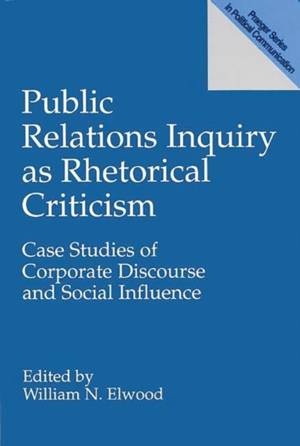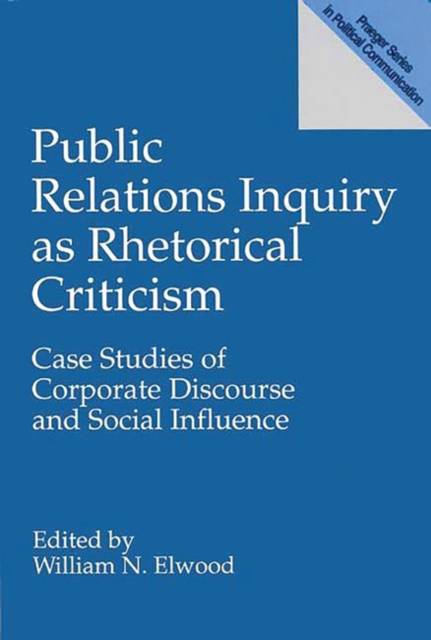
- Retrait gratuit dans votre magasin Club
- 7.000.000 titres dans notre catalogue
- Payer en toute sécurité
- Toujours un magasin près de chez vous
- Retrait gratuit dans votre magasin Club
- 7.000.0000 titres dans notre catalogue
- Payer en toute sécurité
- Toujours un magasin près de chez vous
Public Relations Inquiry as Rhetorical Criticism
Case Studies of Corporate Discourse and Social Influence
William Elwood
60,45 €
+ 120 points
Description
Whether politically, socially, economically, or psychologically, postmodern institutions attempt to influence their environments through the use of rhetoric in their public relations campaigns. As corporations increasingly dominate the public discourse we experience daily, it becomes increasingly important to understand how that discourse operates, and to become more informed creators and consumers of institutional rhetoric.
This volume examines the theoretical bases and practical effects of a variety of public relations campaigns. The contributors demonstrate that rhetorical inquiry is a viable and underrated approach to explaining the influence of public relations campaigns. Cases analyzed in the book range from those of national scope (e.g., Mobil Oil's Observations campaign of the 1970s and 1980s), to studies of targeted influence (e.g., corporate recruitment videos), to cases of internal relations (e.g., issues management during corporate mergers), to studies of local situations (e.g., the anatomy of a local ballot issue campaign). While the various contributors employ a broad range of rhetorical methods and analysis, the discussions remain approachable and understandable for students and professionals alike.Spécifications
Parties prenantes
- Auteur(s) :
- Editeur:
Contenu
- Nombre de pages :
- 352
- Langue:
- Anglais
- Collection :
Caractéristiques
- EAN:
- 9780275951504
- Date de parution :
- 13-06-95
- Format:
- Livre broché
- Format numérique:
- Trade paperback (VS)
- Dimensions :
- 154 mm x 231 mm
- Poids :
- 548 g

Les avis
Nous publions uniquement les avis qui respectent les conditions requises. Consultez nos conditions pour les avis.






